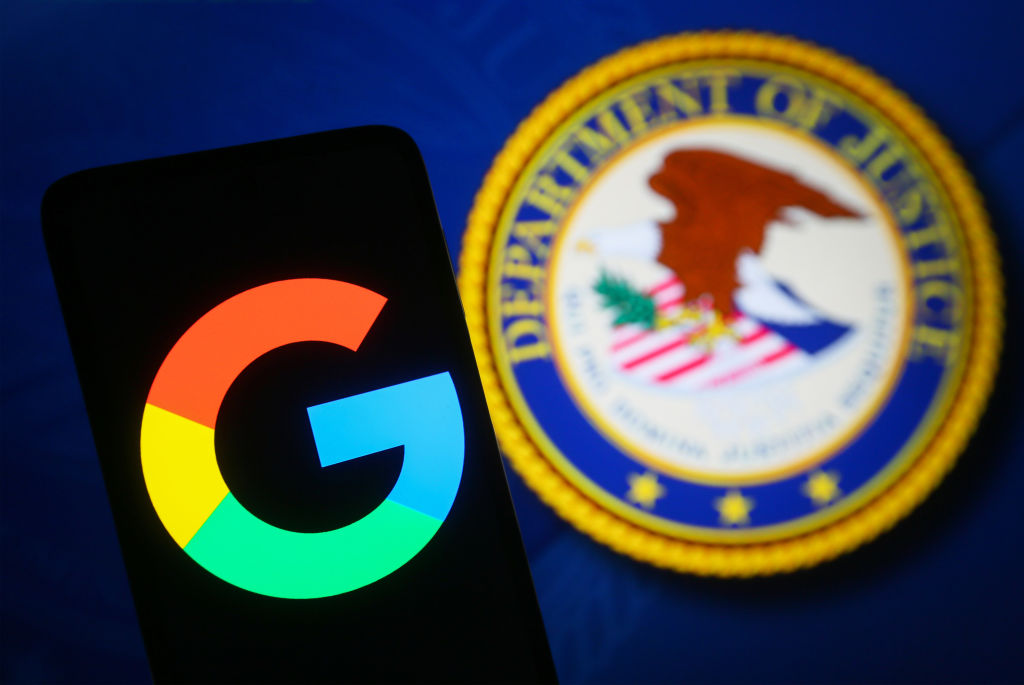IThe stakes are top in a lawsuit between Google and the United States Segment of Justice over whether or not the corporate violated antitrust legislation.
The end result of the 10-week trial, which will likely be determined through US District Pass judgement on Amit Mehta, may essentially trade the best way community seek the Web and let fall earnings for the corporate that runs probably the most prevalent seek engine for on-line customers.
The civil antitrust swimsuit is the primary in a layout of instances focused on alternative tech giants akin to Meta and Amazon. However this actual lawsuit, filed through the Justice Segment and 11 alternative states, alleges that Google has illegally monopolized seek engine services and products through spending billions of bucks to take action, making it the default corporate in which firms Advertisers and web page publishers purchase and promote advertisements.
The query is whether or not [Google] Eleanor Fox, a teacher at Brandnew York College College of Legislation, says it cements a monopoly and closes off avenues for competition to form a aggressive seek engine.
The Justice Segment alleges that Google has word of honour with many cell phone suppliers to safeguard that it’s the default seek engine on gadgets, fighting competition akin to Duck Duck Progress and Microsoft’s Bing from creating a dent within the trade. Then again, Google argues that they don’t seem to be a monopoly, in lieu certifying that customers make a choice Google as it plays absolute best. The corporate additionally says that even though they pay for the default seek engine, that doesn’t word of honour they’ll be the supremacy competitor.
It’s true that alternative customers can without a doubt obtain alternative serps. However what’s troubling, Fox says, is that statistics display that after an organization defaults, customers hardly ever transfer.
Right here’s what you want to grasp in regards to the case.
What’s the trial about?
In January, the Justice Segment filed a lawsuit in opposition to Google, alleging that the corporate violated the Sherman Business, an antitrust legislation that outlaws monopolistic practices. This legislation is helping to safeguard that incorrect unmarried corporate or company controls a selected marketplace.
In United States v. Google, the Justice Segment argues that Google unfairly monopolizes keep watch over of the advert era stack old through advertisers and publishers to shop for and promote advertisements.
In line with the submitting, Google has paid billions of bucks to cellular tool makers and browser builders to safeguard that it’s the default nation seek engine on computers, computer systems and mobile phones. For instance, Google’s agreement with Apple prices the tech gigantic $15-20 billion yearly. The cash additionally guarantees that the ones firms don’t paintings with Google’s competition. In line with courtroom filings, the do business in has helped Google account for just about 95% of all seek queries on cellular gadgets. Google is use about 1.7 trillion greenbacks and has 90% of the United States seek engine marketplace.
The Justice Segment argues that a lot of these practices oppose alternative seek engine firms from having an actual prospect to compete within the trade. The grievance filed states that Google is so dominant that Google isn’t just a reputation to spot the corporate and the Google seek engine, but in addition a verb which means to go looking the Web.
Google claims to monopolize the promoting trade, Fox says, in lieu arguing that it’s simply benefiting from a do business in. The corporate’s legal professionals declare that buyers merely favor their very own seek engine to an backup. And Google has argued that as it has such a lot information from current customers, it could serve a greater revel in for everybody. It argues that default [search engine] He says the placement is pro-competition and pro-efficiency and pro-innovation that provides customers a greater product.
This do business in has helped Google earn masses of billions in earnings, and has additionally helped spice up the earnings of cell phone makers who take part in those trade in with Google.
How this would have an effect on the life of seek
The trial is halfway via, however it isn’t but sunlit how Mehta will rule.
Fox notes that the Justice Segment has a powerful case. The extreme obese case in opposition to obese tech was once the 1998 criminal fight between the Justice Segment and Microsoft over bundling the Web Explorer internet browser with its Home windows gadget. The Justice Segment argued that the corporate had illegally monopolized their function within the laptop trade. and dominated that Microsoft had violated antitrust regulations.
But when Mehta laws in opposition to Google, Fox says Mehta may rule that the word of honour Google signed to put together it the default seek engine on cellular gadgets and computer systems are unlawful. Which means that cellular customers will have the liberty to make a choice their default seek engine, or that builders can come to a decision to paintings with alternative competition.
David Olson, a teacher at Boston Faculty Legislation College, stated NBC Information that this resolution may building up the price of the gadgets to make amends for the lack of the agreement with Google. He provides that if customers proceed to usefulness it, Google can nonetheless have an edge over the contest.
However in spite of the strengths of the Justice Segment’s case, Fox issues out that earlier complaints in opposition to obese tech have usually liked firms like Google.
Fox says the Ultimate Court docket has dominated on a lot of antitrust instances over the hour twenty years, appearing it has extra religion available in the market and empathy for monopolies to behave responsibly towards customers. This makes it very tricky for the plaintiffs to win, and this is the reason this example is sophisticated.
#Googles #Antitrust #Trial #Exchange #Web #Seek
Symbol Supply : pace.com

